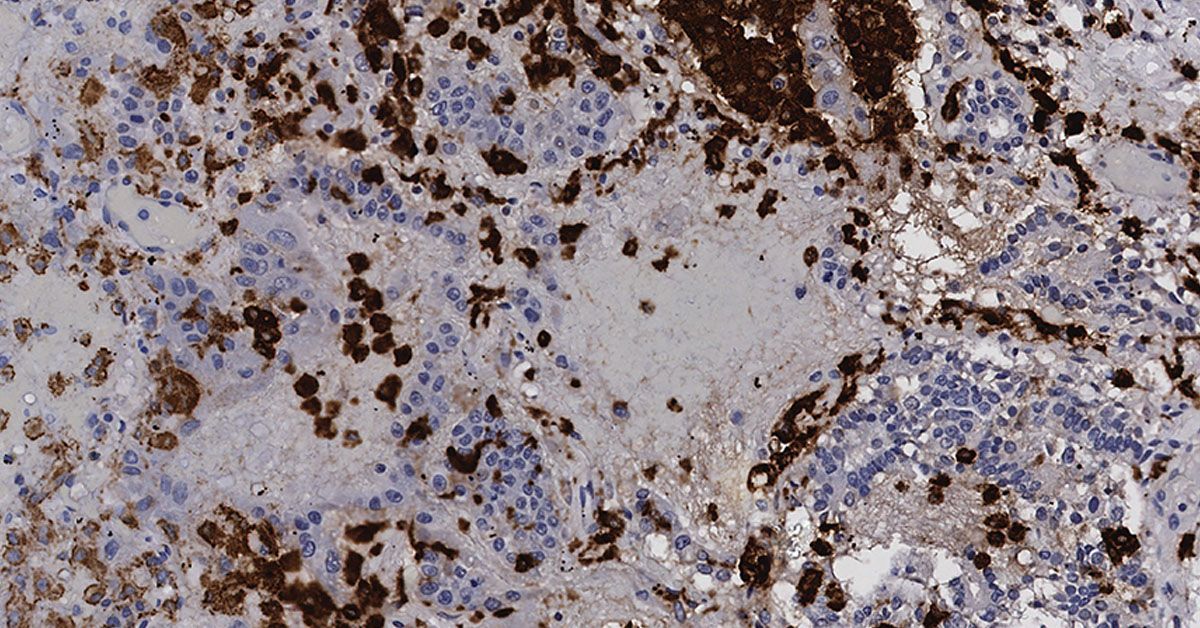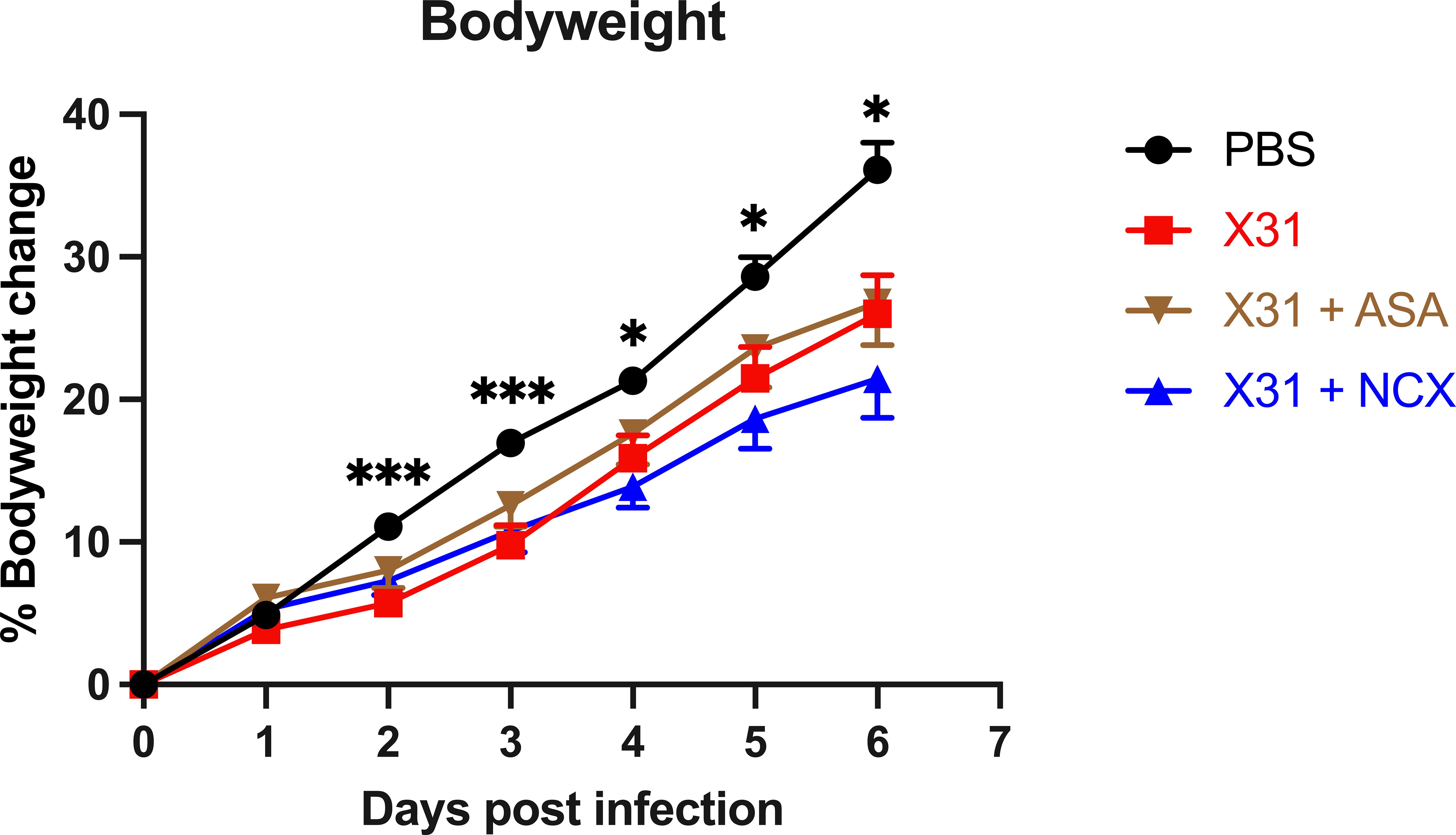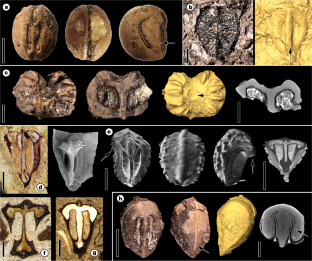2024-07-03 カリフォルニア大学サンディエゴ校(UCSD)
 Unusually high numbers of macrophages (in brown) were detected in cross-sections of lungs from COVID-19 patients using immunohistochemical techniques. Blue counterstain detects nuclei of all cells in the cross-section. Photo credit: UC San Diego Health Sciences
Unusually high numbers of macrophages (in brown) were detected in cross-sections of lungs from COVID-19 patients using immunohistochemical techniques. Blue counterstain detects nuclei of all cells in the cross-section. Photo credit: UC San Diego Health Sciences
<関連情報>
- https://today.ucsd.edu/story/fighting-covid-19-with-a-cancer-drug
- https://www.science.org/doi/10.1126/scitranslmed.adi6887
PI3Kγ阻害はSARS-CoV-2およびその他の感染症における炎症と血管漏出を回避する PI3Kγ inhibition circumvents inflammation and vascular leak in SARS-CoV-2 and other infections
RYAN M. SHEPARD, ANGHESOM GHEBREMEDHIN, ISARAPHORN PRATUMCHAI, SALLY R. ROBINSON, […], AND JUDITH A. VARNER
Science Translational Medicine Published:3 Jul 2024
DOI:https://doi.org/10.1126/scitranslmed.adi6887
Editor’s summary
Respiratory diseases caused by different infectious agents can look similar and can rely on similar therapeutic approaches to dampen inflammation. Here, Shepard et al. identified phosphatidylinositol 3-kinase gamma (PI3Kγ) as a protein that is up-regulated in innate immune cells in the lungs of individuals with COVID-19. They further showed that this was not a COVID-19–specific marker because PI3Kγ was up-regulated in mice infected with other pathogens and after sterile inflammation. PI3Kγ inhibition promoted survival across distinct mouse models of respiratory inflammation and reduced inflammation and vascular leak in the lungs of these animals. These data, which span across human and murine studies, suggest that PI3Kγ inhibition may be an effective host-directed therapy for lung inflammation. —Courtney Malo
Abstract
Virulent infectious agents such as severe acute respiratory syndrome coronavirus 2 (SARS-CoV-2) and methicillin-resistant Staphylococcus aureus (MRSA) induce tissue damage that recruits neutrophils, monocyte, and macrophages, leading to T cell exhaustion, fibrosis, vascular leak, epithelial cell depletion, and fatal organ damage. Neutrophils, monocytes, and macrophages recruited to pathogen-infected lungs, including SARS-CoV-2–infected lungs, express phosphatidylinositol 3-kinase gamma (PI3Kγ), a signaling protein that coordinates both granulocyte and monocyte trafficking to diseased tissues and immune-suppressive, profibrotic transcription in myeloid cells. PI3Kγ deletion and inhibition with the clinical PI3Kγ inhibitor eganelisib promoted survival in models of infectious diseases, including SARS-CoV-2 and MRSA, by suppressing inflammation, vascular leak, organ damage, and cytokine storm. These results demonstrate essential roles for PI3Kγ in inflammatory lung disease and support the potential use of PI3Kγ inhibitors to suppress inflammation in severe infectious diseases.


